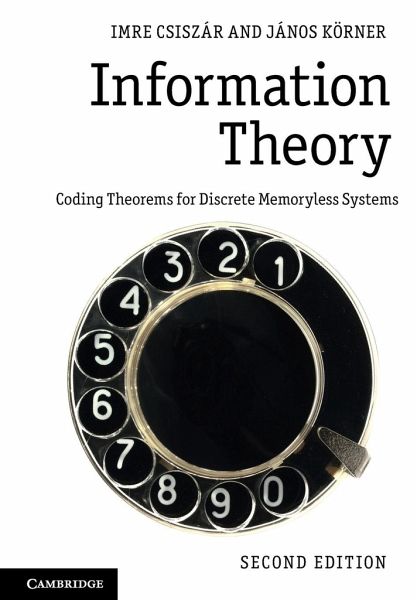
Information Theory
Versandkostenfrei!
Versandfertig in 1-2 Wochen
55,99 €
inkl. MwSt.

PAYBACK Punkte
28 °P sammeln!
Fully updated and revised edition of Csiszar and Korner's classic book on information theory.


Rechnungen
Bestellstatus
Retourenschein
Storno